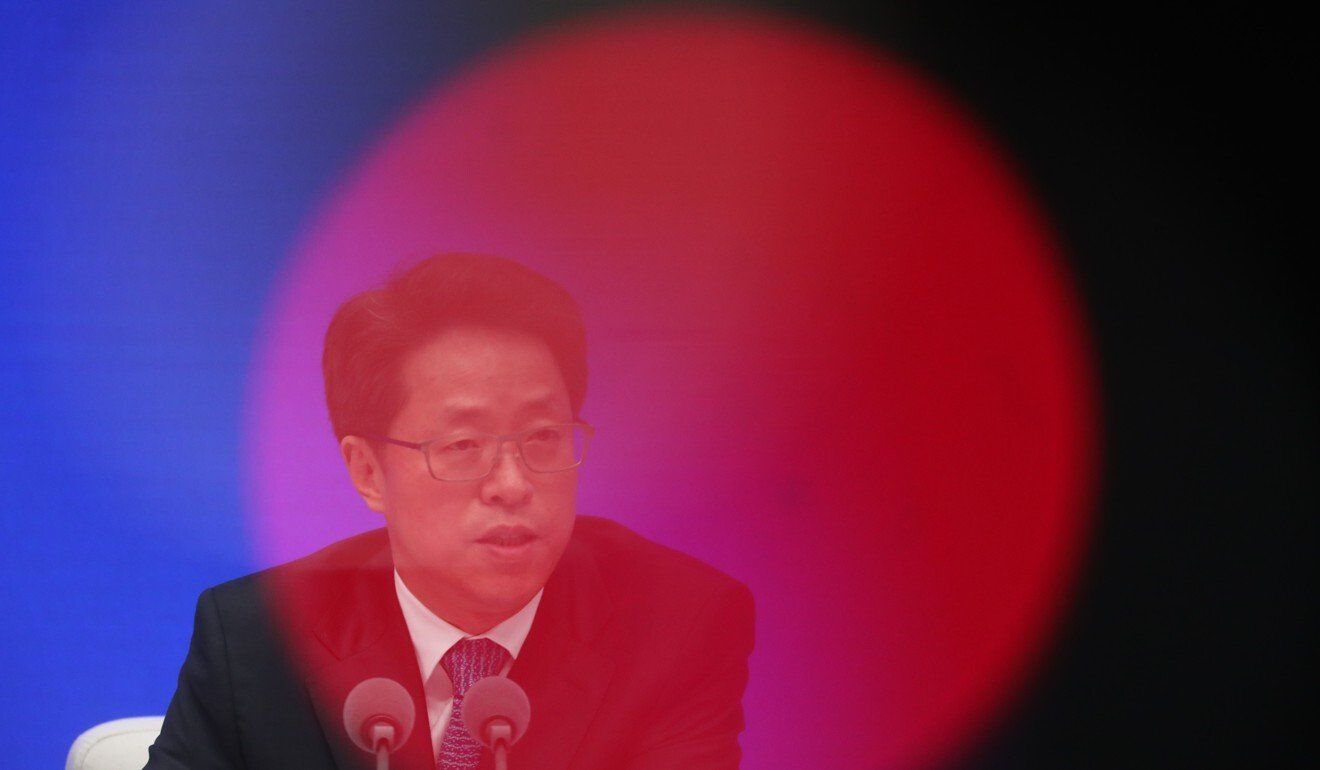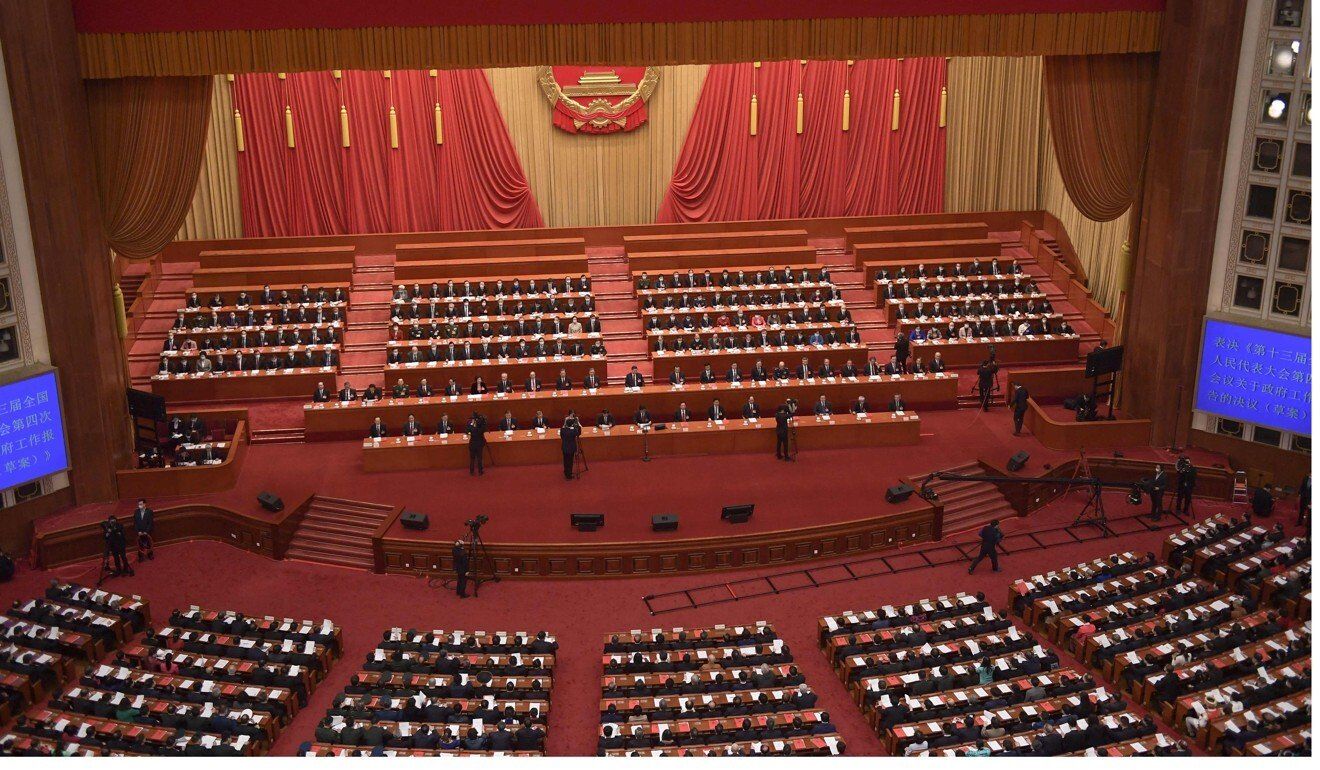
Still room for opposition after Hong Kong electoral revamp: Beijing official
A senior Beijing official on Friday said the central government’s unprecedented overhaul of Hong Kong’s entire political system would not shut out all opposition activists, and there were “patriots” among the pan-democrats who could still run for elections.
Zhang Xiaoming, deputy director of the State Council’s Hong Kong and Macau Affairs Office (HKMAO), described Beijing’s sweeping reform as “minimally invasive surgery” involving deep digging into a small wound with the promise of a speedy recovery.
Zhang, a former director of Beijing’s liaison office in Hong Kong from 2012 to 2017, and ex-head of the HKMAO from 2017 to 2020, was speaking at a high-powered press conference a day after China’s top legislature formally greenlit the biggest shake-up of the city’s political structure.
The National People’s Congress passed a resolution to overhaul the Election Committee, which elects the city’s leader, to effectively shut out opposition members deemed “unpatriotic” and empowering it to decide who gets to run for the legislature.
“To keep unpatriotic people, especially those anti-China troublemaking elements, out of the city’s administrative structure does not mean shutting out all opposition figures or pan-democrats from the system,” Zhang said.
“There are also patriots among the opposition, especially the pan-democratic candidates. They can still participate in elections and be elected in accordance with the law. There will still be a range of voices in the Legislative Council, including those critical of the government. The difference is there won’t be ugly dramas like we’ve seen when certain lawmakers took their oaths.”
His remarks came as local pro-Beijing groups, including the Friends of Hong Kong Association, continued their citywide and online campaign to collect signatures in support of the revamp, while a group of pro-establishment lawmakers launched a separate petition to garner the legal sector’s backing.
 Zhang Xiaoming.
Zhang Xiaoming.
Civil service chief Patrick Nip Tak-kuen was the latest senior official to offer his public support for the changes after Financial Secretary Paul Chan Mo-po visited a street booth on Thursday.
By 4pm on Friday, the pro-establishment camp had collected about 190,000 signatures on its website. Last May, the bloc said it gathered 3 million signatures in support of Beijing’s national security law for Hong Kong, which took effect in July.
In a webinar, former Hong Kong leader Tung Chee-hwa, now a vice-chairman of the Chinese People’s Political Consultative Conference, the country’s top advisory body, said he firmly supported the electoral reform as it would allow political pluralism to continue.
“The implementation of ‘patriots ruling Hong Kong’ did not aim to target any political groups. It did not aim to shut out any party, nor to make Legco speak in one voice … Open, transparent, fair and just election arrangements will still exist,” he said.
Opposition activists, the British and US governments, and European Union have all accused Beijing of hollowing out the space for democratic debate in Hong Kong. In self-ruled Taiwan, the ruling and opposition parties both suggested the changes were regrettable.
At the press conference in Beijing on Friday, other senior mainland officials denied the revamp would be a backward step for the city’s democracy. Yet in a frank admission, they conceded there were deficiencies in the Basic Law’s annexes I and II, which stipulated “flexible” rules for chief executive, Election Committee and legislative elections, and paved the way for opposition activists to endanger the city’s political stability and the country’s national security.
 The National People’s Congress passed the resolution on Thursday.
The National People’s Congress passed the resolution on Thursday.
Zhang also said after the overhaul was completed, Beijing would look into other policy areas that needed reform to ensure the “one country, two systems” principle could be implemented in the long run. Those areas could include economic, cultural and education policies, he said.
Lo Kin-hei, chairman of the opposition Democratic Party, said rather than feeling assured by Zhang’s remarks that some pan-democrats were patriotic, he was more concerned that probable reforms of the economic and education systems would make the city even more unfamiliar to residents.
“Regardless of how Beijing defines pan-democrats or patriots, it’s undeniable this reform will change the whole system, and the directly elected lawmakers’ seats will decrease,” he said.
“These reforms are very much not ‘Hong Kong’. This city has always been diverse, allowing different thoughts and opinions – if only one voice is left, this city is no longer Hong Kong as we know it.”
The NPC’s final endorsement of the electoral overhaul, which was the most controversial and comprehensive revamp of the city’s political structure and electoral system since its handover from Britain to China in 1997, came nine months after Beijing imposed the national security law to prevent any repeat of the often-violent anti-government, anti-China protests of 2019.
The changes will also empower the Election Committee to vet candidates running for Legco and send its own members to the legislature. The committee will grow from 1,200 members to 1,500, as reported earlier by the Post – with the 300 new members forming a fifth sector dominated by Beijing loyalists, on top of the existing business, professional, social and political groupings.
But Zhang said the reform was just “minimally invasive surgery”.
“It leaves small openings but allows us to dig deep. The recovery will be speedy after the surgery,” Zhang said.
He believed Hong Kong’s democratic system would become healthy, with the city regaining its vibrancy.
“It is not an issue of whether we want democracy, or how fast the democratic progress is. This is a struggle against subversive [forces] seizing power and infiltrating, there’s no room for us to give in.”
At the press conference, the officials were asked whether Hong Kong was backsliding on democracy, as Beijing would revive abolished powers under which the Election Committee chose some lawmakers from among its own members from 1998 to 2004.
Under the Basic Law, the city’s mini-constitution, the chief executive and legislative elections should be reformed “in accordance with the principle of gradual and orderly progress”.
But Deng Zhonghua, another deputy director of the HKMAO, said: “One should not say that a revival of past practice must be retrogressive, or must be showing that Hong Kong’s democratic system was not making gradual and orderly progress.
“Gradual and orderly progress does not mean the directly elected [seats] need to increase in every election. As long as the overall direction and trend [of a reform or system] shows expansion in democracy, as well as better protection of Hong Kong’s interests, and its people’s democratic rights and well-being, it is a good method and a good system.”
But Zhang Yong, deputy director of the Legislative Affairs Commission of the National People’s Congress Standing Committee, also conceded that flaws in the Basic Law had allowed opposition activists to threaten China’s national interests.
“What happened in Hong Kong over the years showed that institutional loopholes and deficiencies existed in Annex I and II of the Basic Law. They allowed anti-China troublemakers in Hong Kong to … enter governing bodies, and conduct acts that endanger national sovereignty and security,” Zhang said.
So, the NPCSC, the country’s top legislative body, had to look into those flaws and amend the annexes in the coming months, he added.
Zhang Xiaoming also said after the electoral overhaul was completed, Beijing would consider looking into ways to improve Hong Kong’s education system.
“Work needs to be done to make things right,” he said.
The US State Department on Thursday condemned the NPC’s decision, calling the move a “direct attack” on the city’s autonomy.
The European Union also slammed the decision. EU foreign affairs chief Josep Borrell said in a statement the move was “yet another breach of the ‘one country, two systems’ principle, and another violation of China’s international commitments and the Hong Kong Basic Law”.
But Zhang Xiaoming, asked if he was worried about further foreign sanctions over the electoral reform, hit out at American politicians for displaying “clear double standards” over the 2019 Hong Kong protests, and the storming of the US Capitol earlier this year.
“[Foreign countries] are free to amend their own electoral laws. Why are they so interested in China’s plan to change its own electoral rules?” he said.










